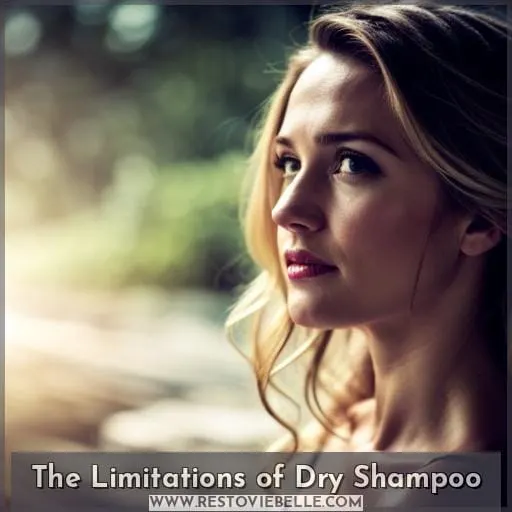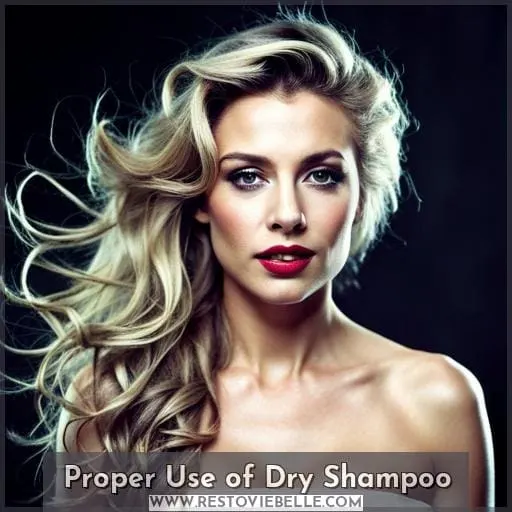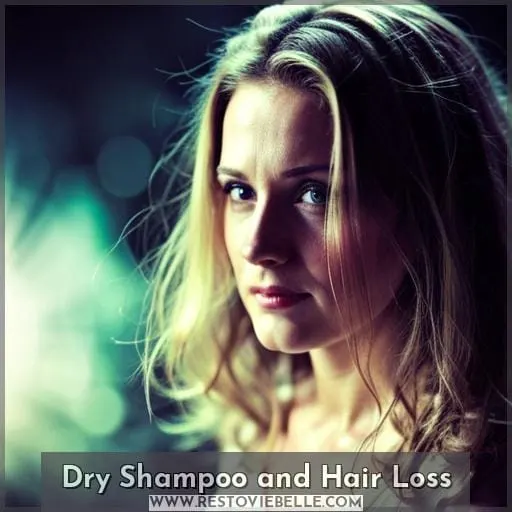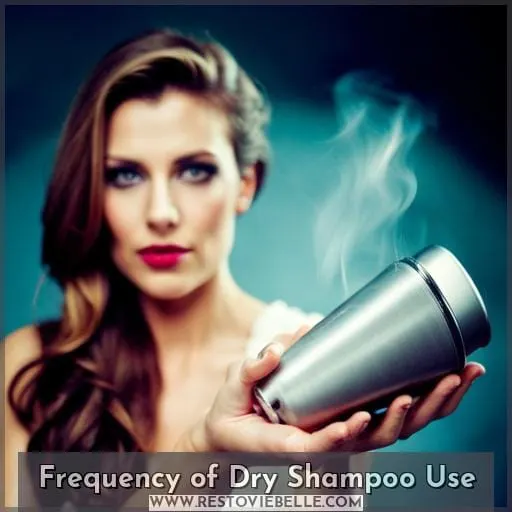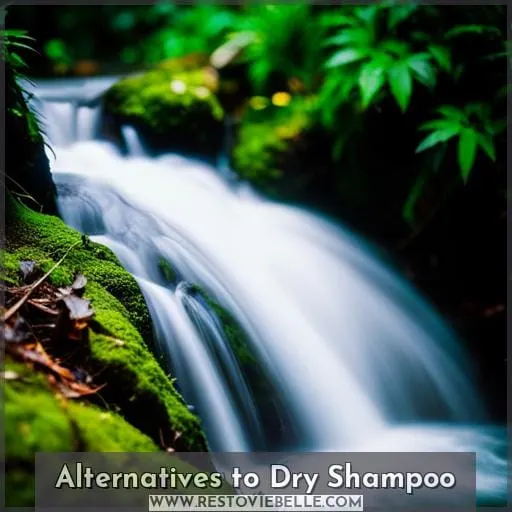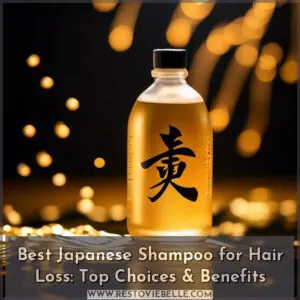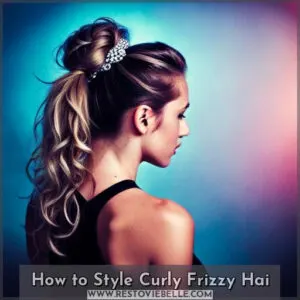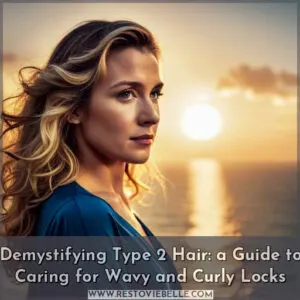This site is supported by our readers. We may earn a commission, at no cost to you, if you purchase through links.
 Discover the truth about dry shampoos and their impact on your hair. Are they really as good as they claim to be?
Discover the truth about dry shampoos and their impact on your hair. Are they really as good as they claim to be?
While these time-saving products can give your hair a quick refresh, it’s important to understand both the benefits and potential side effects.
From saving you precious minutes in the morning to extending time between wet washes, dry shampoo has its advantages.
Find out everything you need to know before reaching for that spray bottle.
Table Of Contents
- Key Takeaways
- The Limitations of Dry Shampoo
- Potential Side Effects of Overusing Dry Shampoo
- Addressing Health Concerns and Ingredients
- Benefits of Using Dry Shampoo
- Proper Use of Dry Shampoo
- Dry Shampoo and Hair Loss
- Frequency of Dry Shampoo Use
- Alternatives to Dry Shampoo
- Frequently Asked Questions (FAQs)
- Conclusion
Key Takeaways
- Dry shampoo is not a substitute for traditional shampoo and does not clean hair.
- Overusing dry shampoo can lead to hair breakage and dryness.
- It can contribute to scalp issues like dandruff and folliculitis if used excessively.
- While some dry shampoo brands are free from harmful ingredients, certifications like Certified Organic and Vegan are available for those with specific preferences.
The Limitations of Dry Shampoo
Dry shampoo may be a convenient option for refreshing your hair between washes, but it’s important to understand its limitations.
Unlike traditional shampoo, dry shampoo doesn’t actually clean the hair; instead, it absorbs excess oil to make your hair appear cleaner.
While it can be effective in giving the illusion of freshly washed locks, it isn’t a substitute for regular cleansing and should only be used as a temporary solution.
Dry Shampoo Does Not Clean the Hair Like Traditional Shampoo
Dry shampoo doesn’t clean your hair like traditional shampoo does.
- Traditional shampoos use water to remove dirt, oil, and product buildup from the scalp and strands.
- Dry shampoo primarily absorbs excess oil to give the appearance of cleaner hair.
- It can leave a residue on the scalp if not properly removed, affecting overall hair cleanliness.
It Only Absorbs Oil to Make Hair Appear Cleaner
Did you know that dry shampoo, unlike traditional shampoo, doesn’t actually clean your hair? Instead, it simply absorbs oil to give the appearance of cleaner hair. This limitation is important to understand when considering the use of dry shampoo for maintaining hair health.
While it can be a convenient option for extending time between washes, it’s crucial to remember that regular washing with water and gentle shampoos is still necessary for proper scalp care and overall hair health.
| Limitations of Dry Shampoo |
|---|
| Dry Shampoo Does Not Clean Hair Like Traditional Shampoo |
| It Only Absorbs Oil to Make Hair Appear Cleaner |
Dry shampoos have gained popularity as a quick fix for oily or unwashed hair. However, it’s essential to recognize their limitations in terms of cleaning effectiveness compared to traditional liquid shampoos.
Unlike regular shampoos which lather up and remove dirt and impurities from the scalp and strands through rinsing with water, dry shampoo works differently by absorbing excess oil from the roots while leaving behind a residue on both the scalp and strands (Hair Health).
While this absorption process may temporarily make your tresses look fresher without going through an actual wash cycle; keep in mind that using solely this method won’t provide long-term benefits like cleansing or nourishing properties found in traditional wet-shampoo formulas (Scalp Care).
Here are some key points regarding how dry shampoo functions:
-
Product Ingredients:
- Typically contains starches or alcohols.
- These ingredients work together by clinging onto excess oils present near your roots.
- Some individuals prefer making their own natural alternatives using household items such as cornstarch or cocoa powder mixed with essential oils.
- While convenient at times when you’re short on time or need instant volume boost,
- It’s still important to maintain a regular hair washing routine with water and traditional shampoos.
Understanding the limitations of dry shampoo is crucial for maintaining optimal scalp health and overall hair care. While this product can be useful in certain situations, relying on it as a long-term substitute for proper cleansing may lead to potential issues like clogged follicles or buildup (Product Ingredients).
Therefore, consider using dry shampoo sparingly and incorporate regular wet washes into your weekly routine to ensure your scalp remains healthy (Scalp Care).
For those who prefer natural alternatives or have specific concerns about product ingredients, exploring organic or DIY options could be beneficial. These homemade mixtures often utilize plant-based ingredients such as arrowroot powder or essential oils that provide similar oil-absorbing effects without the use of potentially harsh chemicals found in commercial products (DIY Options).
Potential Side Effects of Overusing Dry Shampoo
Overusing dry shampoo can have potential side effects on your hair.
Excessive use of dry shampoo can lead to hair breakage, as the product doesn’t provide the necessary nourishment and hydration that traditional shampoos do. Alcohols found in aerosol products may also contribute to drying out your hair, making it more prone to damage and breakage.
Additionally, overuse of dry shampoo has the potential to clog hair follicles, leading to itching or even folliculitis (inflammation of the hair follicle), while retained oil from excessive use can contribute to dandruff and seborrheic dermatitis.
Excessive Use Can Lead to Hair Breakage
Overusing dry shampoo can lead to hair breakage if you don’t give your hair the proper care it needs.
Excessive use of dry shampoo can have negative effects on your scalp health and overall hair texture, resulting in weakened strands that are prone to breakage.
It’s important to be mindful of how often you rely on dry shampoo and take steps to minimize product residue buildup by properly cleansing and nourishing your hair regularly.
Weakened Hair Strands
Impaired Scalp Health
Decreased Hair Texture
Increased Risk of Breakage
Alcohols in Aerosol Products Can Dry Out Hair
Using dry shampoo excessively can have potential side effects on your hair, such as the drying effect of alcohols found in aerosol products.
These alcohols can strip away the natural oils from your scalp and hair strands, leading to dryness and brittleness.
It’s important to choose alternatives that are alcohol-free or contain moisturizing ingredients to prevent these negative effects.
Proper application of dry shampoo and understanding its ingredients will help you maintain healthy hair while enjoying the convenience it offers.
Overuse May Clog Hair Follicles and Cause Itching or Folliculitis
To avoid clogging your hair follicles and experiencing itching or folliculitis, it’s important to use dry shampoo in moderation.
Overusing dry shampoo can lead to the accumulation of product on the scalp, potentially clogging hair follicles. This can cause itching and irritation, leading to a condition called folliculitis.
It’s crucial to maintain scalp health by ensuring proper cleansing and avoiding excessive buildup of dry shampoo. Additionally, overuse may also contribute to hair breakage and increase the risk of dandruff development on the scalp.
Retained Oil Can Contribute to Dandruff and Seborrheic Dermatitis
If you use dry shampoo excessively, it can contribute to the development of dandruff and seborrheic dermatitis.
Retained oil on the scalp from overusing dry shampoo can lead to these common scalp conditions.
To prevent dandruff and seborrheic dermatitis, it’s important to maintain proper scalp care and avoid excessive use of dry shampoo.
Consider organic alternatives or limit your usage based on your hair type for optimal hair health.
Addressing Health Concerns and Ingredients
Now, let’s address some health concerns and ingredients related to dry shampoos.
Firstly, it’s important to clarify that talc in dry shampoo doesn’t pose a known cancer risk. However, poor scalp health can indirectly impact hair loss by weakening the hair follicles. Additionally, bacterial or fungal infections on the scalp can also contribute to weakened follicles and potential hair loss over time.
Clarify That Talc in Dry Shampoo Does Not Pose a Known Cancer Risk
Don’t worry, dry shampoos containing talc don’t pose a known cancer risk. Extensive research has been conducted on the potential link between talcum powder and ovarian cancer, but there’s no evidence to suggest that talc in dry shampoos carries the same risk.
To provide further reassurance, here is a comparison table of popular dry shampoo brands that are free from harmful ingredients:
| Brand | Features | Certifications |
|---|---|---|
| Primally Pure Dry Shampoo | Made with organic arrowroot powder | Certified Organic |
| Acure Dry Shampoo | Vegan and certified by Leaping Bunny and PETA | – |
These certified organic options offer effective oil absorption without any health concerns regarding talcum or other potentially harmful ingredients commonly found in conventional products.
Poor Scalp Health Can Indirectly Impact Hair Loss
When it comes to hair loss, it’s important to recognize that poor scalp health can indirectly contribute to this concern.
Scalp problems such as dandruff, seborrheic dermatitis, or bacterial and fungal infections can weaken hair follicles and lead to hair loss over time.
While dry shampoo itself doesn’t directly cause hair loss, if it leads to scalp issues or inflammation due to its drying effect on the scalp, it could potentially result in eventual hair loss.
Bacterial or Fungal Infections Can Weaken Hair Follicles
Bacterial or fungal infections can weaken hair follicles, potentially leading to hair loss and other scalp issues.
When it comes to dry shampoo, it’s important to address these health concerns and ingredients that may affect your scalp’s well-being.
Here are some key points:
- Fungal infections on the scalp can cause inflammation and damage the hair follicles.
- Weakened hair follicles may result in thinning or shedding of the hair.
- Microbiome restoration is crucial for maintaining a healthy scalp environment.
[BULLETED LIST]
- Fungal Infections: Can lead to inflammation and damage of the hair follicles
- Scalp Health: Important for maintaining strong, healthy hairs
- Hair Follicles: Weakening effects from bacterial or fungal infections
Benefits of Using Dry Shampoo
Dry shampoo offers several benefits for your hair care routine.
It saves you time by allowing you to avoid frequent washing, making it ideal for busy individuals.
Additionally, dry shampoo is recommended for specific hair types or situations, such as type 3 or 4 curls and camping trips.
By absorbing oil and refreshing your hair’s appearance, dry shampoo also extends the time between wet washes and provides quick touch-ups on hectic days.
Saves Time for Individuals Who Want to Avoid Frequent Washing
If you’re someone who wants to avoid frequent washing, dry shampoo can save you time.
It offers time-saving benefits by allowing you to extend the time between wet washes and reduce the need for daily hair washing.
For quick touch-ups on busy days, dry shampoo is a convenient option.
Additionally, there are organic options available for those looking for a more natural alternative.
Consider trying out different brands and finding one that suits your hair type and preferences.
Suitable for Specific Hair Types or Situations
For those with type 3 or 4 curls, dry shampoo can be a convenient option to refresh and extend the time between wet washes. It’s especially beneficial in situations where washing your hair may not be feasible or practical.
Dry shampoo allows you to quickly touch up your hair on busy days and helps maintain the appearance of clean, fresh hair without stripping natural oils.
There are also organic options available for those who prefer to avoid chemicals in their beauty routine.
Extends the Time Between Wet Washes
To extend the time between wet washes, using dry shampoo can be a convenient solution for busy individuals like you.
Dry shampoo absorbs oil and gives hair a cleaner appearance without the need for water. It’s especially beneficial for managing oily hair or when you’re on-the-go and don’t have time to wash your hair regularly.
However, it’s important to choose wisely and consider the long-term effects of using products like spray natural dry shampoo or foam organic dry shampoo.
Some recommended options include Hair Dance Volumizing Dry Shampoo or Briogeo Scalp Revival Charcoal + Biotin Dry Shampoo.
Allows for Quick Touch-ups on Busy Days
When you’re pressed for time and need a quick hair refresh on busy days, dry shampoo comes to the rescue.
It allows for effortless touch-ups that instantly revive your hair, even during rush hours or in a time crunch.
Say goodbye to greasy locks and hello to instant revival with unscented organic dry shampoos like Rahua Voluminous Dry Shampoo, Beauty By Earth Dry Shampoo, Love Beauty and Planet Oil Absorbing Refreshing Dry Shampoo, or even try DIY dry shampoo options.
Proper Use of Dry Shampoo
To properly use dry shampoo, it’s important to follow a few guidelines.
First, hold the canister at least 6-8 inches away from your head when spraying to ensure even distribution.
Next, target only the oily areas of your hair rather than spraying all over.
Lastly, after applying the dry shampoo, use your fingers or a comb to distribute it evenly throughout your hair for best results.
Remember that using dry shampoo sparingly and considering organic or DIY options can help maintain the health of both your hair and scalp.
Guidelines on Distance and Targeting Oily Areas
To properly use dry shampoo, spray it from a distance of about 6-8 inches away from your head, targeting the oily areas. This ensures an even distribution of the product and prevents build-up on your scalp.
By maintaining this spray distance, you can achieve optimal results without compromising your scalp health.
Tips on Distributing the Product Evenly
To ensure effective application, evenly distribute the dry shampoo throughout your hair using your fingers or a comb.
Here are some tips to help you achieve even product distribution:
- Start by sectioning your hair into smaller sections.
- Apply a small amount of dry shampoo to each section, focusing on the roots and oily areas.
- Use your fingers or a wide-toothed comb to work the product into the strands and distribute it evenly.
- Be gentle when distributing the product to avoid causing excessive tugging or breakage.
- Take time to blend in any visible white residue for a seamless finish.
Limiting Use to Maintain Hair and Scalp Health
To maintain the health of your hair and scalp, it’s important to limit the use of dry shampoo.
Reducing frequency can help prevent potential side effects such as hair breakage and clogged follicles.
Additionally, consider exploring DIY options or organic choices for a more natural approach to hair care.
By prioritizing scalp care and making conscious choices about how often you use dry shampoo, you can promote overall hair health in the long run.
Consideration of Organic or DIY Options
When considering the proper use of dry shampoo, it’s important to take into account organic or DIY options that can help reduce exposure to chemicals and promote hair and scalp health.
Some alternatives include:
- Homemade dry shampoos made with natural ingredients like arrowroot powder or cornstarch.
- Various organic alternatives available in the market that offer chemical-free solutions for those seeking a more natural approach to hair care.
Dry Shampoo and Hair Loss
Dry shampoo itself doesn’t directly cause hair loss, but it can potentially contribute to scalp issues or inflammation that may lead to hair loss over time.
The drying effect of alcohol or starch-based dry shampoos can also weaken the hair, making it more prone to damage and breakage.
It’s important to note that any inflammation on the scalp has the potential to affect hair follicles and result in temporary or permanent hair loss.
Dry Shampoo Itself Does Not Directly Cause Hair Loss
Using dry shampoo alone doesn’t directly lead to hair loss.
While it’s true that overuse of dry shampoo can cause scalp issues or inflammation, which may contribute to hair loss over time, the product itself isn’t the direct cause.
Dry shampoos are typically alcohol- or starch-based and can potentially dry out the hair, making it more susceptible to damage and breakage.
It’s important to maintain a healthy scalp through proper care and avoid excessive use of any product for optimal hair health.
Dry shampoo has been a popular solution for those looking to extend their time between washes due to its convenience and ability to absorb excess oil from the roots. However, there have been concerns about its impact on overall scalp health and whether it contributes in any way towards causing hair loss.
It’s essential first understand how dry shampoos work before discussing their potential link with hair loss. Unlike traditional shampoos that clean by removing dirt particles from both your strands as well as your scalp using surfactants (detergents), The primary function of most commercial brands’ products sold contains ingredients like starches or alcohols which help soak up oil at our roots while giving us fresher-looking locks without having gone through water washing.
While these ingredients do an excellent job at absorbing oils they don’t actually cleanse but rather simply mask unwanted odors leaving behind some residue on our scalps until we decide finally decided wash all traces away properly under running tap waters again later when we get around doing so eventually anyway!
Now let me assure you this: Using just solely relying upon applying only either kind mentioned above will NOT result into losing one single strand whatsoever because none contain anything harmful would be able affect growth rate nor encourage shedding even though sometimes might feel little bit drier than usual after repeated consecutive days pass since last thorough cleansing routine had taken place; however if left unwashed long enough then particular situation could potentially lead towards accumulation dirt oil buildup scalp which might indirectly cause follicle irritation thus resulting loss over time due weakened roots causing easier breakage overall hair fiber its entirety.
Potential for Scalp Issues or Inflammation Leading to Hair Loss
If you overuse dry shampoo, it can potentially lead to scalp issues or inflammation that may result in hair loss.
Proper scalp care is crucial for maintaining healthy hair.
Dry shampoo, especially those containing alcohol or starch-based ingredients, can dry out the hair and make it more prone to damage and breakage.
Inflammation on the scalp has the potential to weaken hair follicles and contribute to hair loss over time.
Therefore, practicing good scalp hygiene and using dry shampoo in moderation is essential for preserving your hair health.
Drying Effect of Alcohol or Starch-based Dry Shampoos
If you regularly use dry shampoo, you may be concerned about the drying effect that alcohol or starch-based formulations can have on your hair.
While these ingredients are commonly found in dry shampoos for their oil-absorbing properties, they can also leave your hair feeling dry and brittle if used excessively.
To maintain healthy hair, it’s important to choose wisely and opt for products with natural alternatives that provide moisture while refreshing your locks.
Proper application is key to minimizing any potential drying effects and maintaining overall hair health.
Inflammation on the Scalp Can Contribute to Hair Loss
When inflammation occurs on the scalp, it can potentially contribute to hair loss.
While dry shampoo itself doesn’t directly cause hair loss, if it leads to scalp issues or inflammation, there’s a possibility of hair loss over time.
Dry shampoos are often alcohol- or starch-based and can dry out the hair, making it more susceptible to damage and breakage.
It’s important to maintain a healthy scalp and address any signs of inflammation in order to prevent potential hair loss.
Frequency of Dry Shampoo Use
When it comes to using dry shampoo, moderation is key.
It’s generally advised to use dry shampoo no more than once or twice a week.
The frequency of use can vary depending on factors such as your skin type, hair oiliness, and the presence of scalp conditions.
Remember that dry shampoo should be used when truly needed and not as a regular part of your beauty routine; some individuals may not need it at all based on their hair type.
Moderation is Advised, Ideally 1-2 Times a Week
To maintain the health of your hair and scalp, it’s recommended that you use dry shampoo in moderation, ideally limiting its use to 1-2 times a week.
This frequency allows for effective oil absorption without excessive drying or irritation.
It also reduces the risk of clogging hair follicles and potential scalp issues associated with overuse.
However, keep in mind that individual factors such as skin type and hair oiliness can influence how often you should use dry shampoo.
- Use dry shampoo 1-2 times per week.
- Avoid excessive drying or irritation by using it in moderation.
- Reduce the risk of clogging hair follicles by limiting usage.
- Consider individual factors like skin type and hair oiliness when determining frequency.
Factors Influencing Frequency Include Skin Type and Oiliness
Factors that influence how often you should use dry shampoo include your skin type and the oiliness of your hair.
Skin type plays a role in determining how quickly your scalp produces oil, while hair oiliness affects the rate at which your hair becomes greasy. By considering these factors, you can determine the optimal frequency of dry shampoo use to maintain clean and healthy-looking hair.
| Factors Influencing Frequency | |
|---|---|
| Skin Type | Oiliness of Hair |
Should Be Used When Truly Needed, Not as a Regular Routine
Using dry shampoo should be based on your individual needs and not become a regular part of your hair care routine. It’s important to use it sparingly to maintain scalp health and proper hair maintenance.
Dry shampoo should only be used occasionally when needed, rather than as a substitute for regular hair washing. By limiting its use, you can ensure that your hair remains healthy and free from any potential side effects associated with excessive dry shampoo use.
Individual Hair Types May Not Require Dry Shampoo at All
If you have hair that doesn’t get oily quickly, you may not need to use dry shampoo at all. Some hair types naturally produce less oil, making it unnecessary to rely on dry shampoo for oil absorption.
Instead of using dry shampoo as a necessity, consider these recommendations for alternatives and maintaining overall hair health:
- Regularly wash your hair with water and gentle shampoo.
- Embrace your natural oils by extending the time between washes.
- Use organic or DIY options to reduce exposure to chemicals.
- Consult with a hairstylist or dermatologist for personalized recommendations.
Alternatives to Dry Shampoo
When it comes to alternatives to dry shampoo, the best option is simply washing your hair with shampoo and water.
Regular cleansing of the scalp and hair is essential for maintaining optimal hair health.
While dry shampoo can be convenient in certain situations, overreliance on it should be avoided as it doesn’t provide the same level of cleanliness as traditional washing.
It’s important to consider individual factors such as hair type and skin condition when deciding which method is best for you.
Regular Shampooing With Water is the Best Alternative
To maintain healthy and clean hair, washing your hair with water and regular shampoo is the best alternative to using dry shampoo.
While dry shampoo can be convenient for extending the time between washes, it shouldn’t replace regular hair washing.
Washing your hair with water helps to remove dirt, oil, and product buildup from both the scalp and strands of hair. It promotes overall scalp health by providing thorough cleansing and proper hydration for optimal hair health.
Dry Shampoo Should Not Replace Regular Hair Washing
Regular shampooing with water is the most effective alternative to dry shampoo when it comes to keeping your hair clean and healthy.
While dry shampoo can be convenient for specific situations, it shouldn’t replace regular hair washing.
Wet washing with a gentle shampoo helps maintain scalp health, removes dirt and buildup more effectively, and promotes overall hair hygiene.
Incorporating wet washing into your routine ensures that you’re properly cleaning your scalp and maintaining healthy hair.
Overreliance on Dry Shampoo is Discouraged
Using dry shampoo excessively isn’t recommended for maintaining healthy hair, as there are alternatives that can provide the same benefits without potential side effects.
Overreliance on dry shampoo can lead to scalp issues, such as itching and folliculitis. It’s important to find a balance and limit the frequency of use to maintain hair and scalp health.
Consider exploring organic options or DIY alternatives that minimize exposure to chemicals while still refreshing your hair between washes.
Consideration of Individual Hair and Skin Types
When considering alternatives to dry shampoo, it’s important to take into account your individual hair and skin types. Customized solutions are key when selecting products that cater to specific needs.
Consider factors such as:
- Skin sensitivity
- Hair texture
- Scalp health
- Product selection
Understanding these elements will help you find the best alternative for maintaining clean and healthy hair without relying solely on dry shampoo.
Frequently Asked Questions (FAQs)
Can dry shampoo completely replace traditional shampoo for regular hair washing?
Dry shampoo can’t completely replace traditional shampoo for regular hair washing. While it can be convenient in certain situations, it doesn’t provide the same level of cleanliness and scalp health as water-based shampoos.
Does dry shampoo cause hair loss?
Dry shampoo doesn’t directly cause hair loss.
However, excessive use can lead to scalp issues and inflammation, potentially resulting in hair loss over time.
Proper usage and moderation are key for maintaining healthy hair.
Is it safe to use dry shampoo every day?
Using dry shampoo every day isn’t recommended.
While it can be a convenient option for extending time between washes, overuse may lead to scalp issues and hair breakage.
Moderation is key for maintaining healthy hair and scalp.
Are there any natural or organic alternatives to traditional dry shampoos?
Looking for natural or organic alternatives to traditional dry shampoos?
You’ll be glad to know that there are plenty of options available. In fact, Hair Dance Volumizing Dry Shampoo is a top pick and suitable for all hair colors.
Can using dry shampoo lead to scalp infections or other skin issues?
Using dry shampoo excessively can potentially lead to scalp infections or other skin issues.
It’s important to use dry shampoo in moderation, following proper guidelines for application and considering individual factors like skin type and presence of scalp conditions.
Conclusion
To sum it up, dry shampoos can be a convenient option for refreshing your hair and extending time between washes. However, it’s important to use them in moderation and be aware of potential side effects.
Overuse can lead to hair breakage, dryness, clogged follicles, and scalp issues. It’s crucial to maintain proper hair and scalp health to prevent any negative impact.
While dry shampoo can be beneficial for saving time and quick touch-ups, it shouldn’t replace regular hair washing with water.

